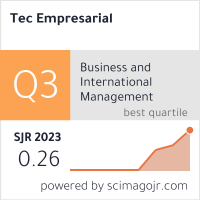THE INFLUENCE OF TAX PLANNING AND EARNINGS MANAGEMENT ON THE PERFORMANCE OF LISTED COMPANIES ON THE STOCK EXCHANGE OF THAILAND
Abstract
The purpose of this research was to examine the influence of tax planning and earnings management on the performance of listed companies in the Stock Exchange of Thailand. The researcher collected secondary data from 2020 to 2021, comprising 620 samples. The measurements included assessing tax planning from the Effective Tax Rate (ETR), Tax/Total Assets (ASSET), measuring Earnings management, and measuring the Firm Performance, Return on Equity (ROE), and Return on Assets (ROA). Additionally, economic aspects were considered using Tobin's Q indicators. The analysis utilized Structural Equation Modeling (SEM) and Path Analysis.
The study revealed that Tax planning based on the Effective Tax Rate (ETR) displayed a positive correlation with the Firm Performance, as measured by Return on Equity (ROE), and Return on Assets (ROA). However, no statistically significant correlation was identified when measuring performance based on Tobin's Q concept. This suggests that the companies employing Tax planning tend to experience enhanced performance. Tax planning among listed companies on the stock exchange is manifested in the form of a declining Effective Tax Rate (ETR) and the Tax to Total Assets (Asset) ratios on an annual basis. Conversely, Earnings Management (EM) demonstrated a propensity to fluctuate. Earnings Management displayed a correlation with performance outcomes in the same direction. This is due to executives effectively managing to boost earnings, thereby showcasing commendable performance. This is crucial for achieving heightened returns and meeting the investors’ expectations, subsequently attracting more investor capital and augmenting the stock value, ultimately contributing to improved firm performance.






